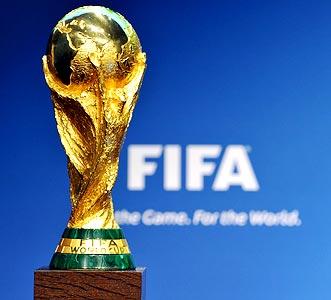Beer will sold at the 12 venues of the 2014 World Cup finals, FIFA general secretary Jerome Valcke said on Wednesday as he attempted to close all further discussion on a controversial issue in Brazil.
Voting on the bill for the World Cup Law has been held up over differences between the tournament hosts and world soccer's governing body, notably on the sale of alcoholic drinks at sports venues which is banned in Brazil.
The bill was scheduled to have been voted on by the chamber of deputies at the end of last year but it has been delayed by several issues including the sale of beer, with FIFA demanding protection of sponsors' trademarks.
"Alcoholic drinks are part of the FIFA World Cup, so we're going to have them. Excuse me if I sound a bit arrogant but that's something we won't negotiate," Valcke said.
"The fact that we have the right to sell beer has to be a part of the Law," he told the foreign press corps in an interview in Rio de Janeiro, where on Thursday he will hold a meeting with the World Cup local organizing committee (LOC).
 Alcoholic drinks have been banned in Brazil's stadiums since 2003 as part of the Supporters' Statutes, aimed at preventing violence among hardcore fans at football matches.
Alcoholic drinks have been banned in Brazil's stadiums since 2003 as part of the Supporters' Statutes, aimed at preventing violence among hardcore fans at football matches.
Alexandre Padilha, health Minister in President Dilma Rousseff's government, and other members of parliament linked to health matters have put pressure on Congress to maintain the ban in the World Cup Law.
One of FIFA's longest-standings sponsors is the US brewer Budweiser, which belongs to the world's biggest beer-selling group Anheuser-Busch InBev.
"Our partner here is in fact a Brazilian company," said Valcke referring to the local AmBev which is part of AB InBev.
Another point of discord between the government and FIFA is half-price tickets for students and senior citizens which is the rule in Brazil.
Valcke said this issue would be resolved by creating a special category of tickets worth $25 each with 300,000 available for the group phase to several groups of people including students and the elderly.
He said, however, there needs to be strict controls of the people who qualify for these tickets.
"It's unfair if a person who can afford a category one ticket buys a category four ticket. We must guarantee this won't happen because apparently it's very easy to obtain a student card here," Valcke said.














 © 2025
© 2025